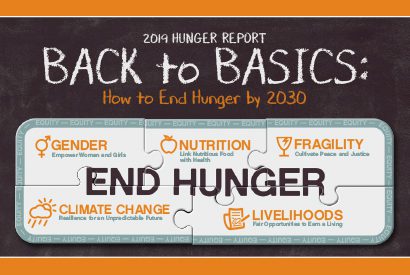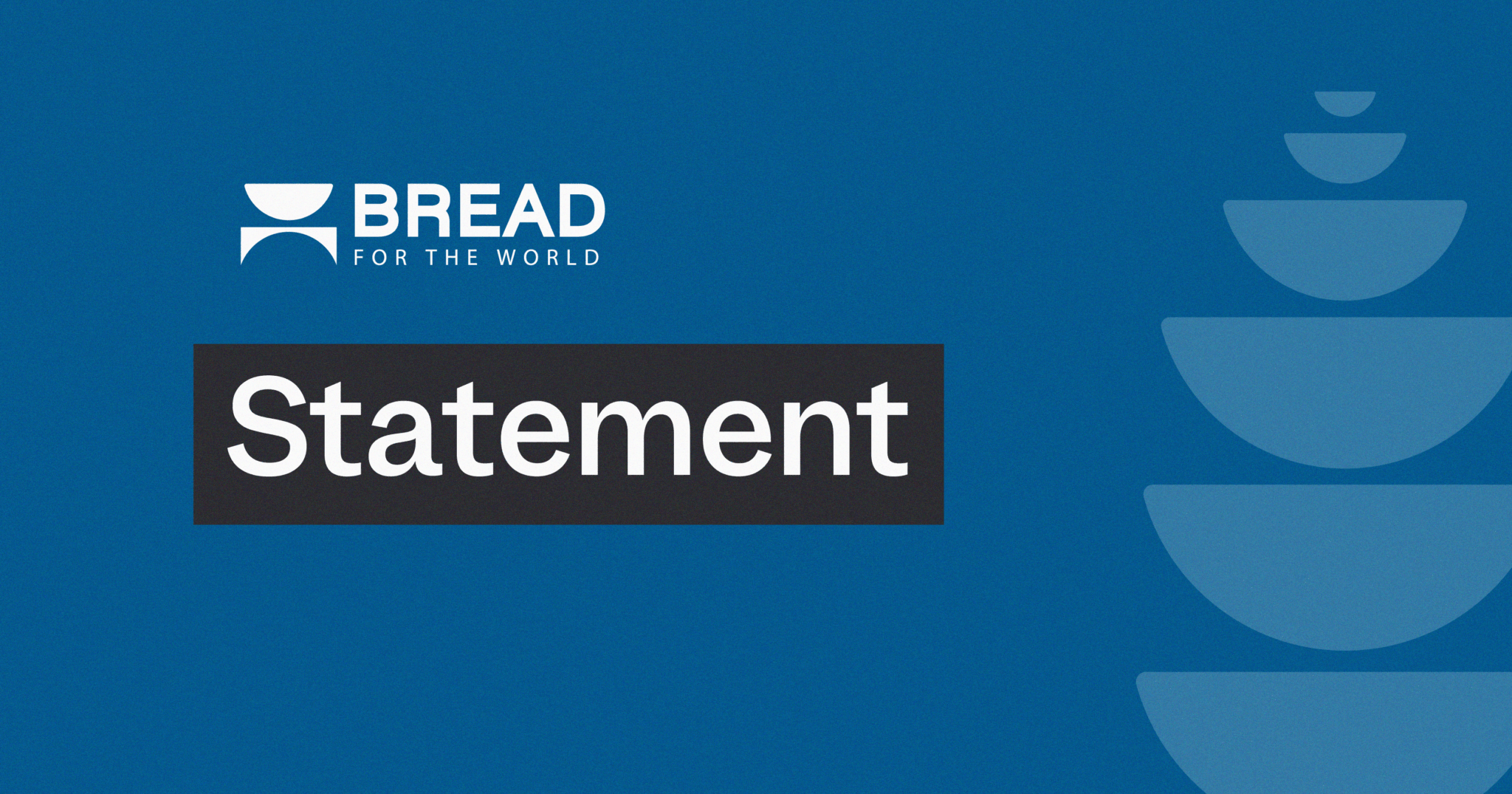Washington, D.C. – A new report released by Bread for the World offers solutions to both U.S. and global hunger. “Back to Basics: How to End Hunger by 2030” explores five challenges that require more attention to achieve a world without hunger: nutrition, livelihoods, gender, fragility, and climate change.
“Ending hunger will take more than donating to food pantries or providing aid to communities and countries affected by natural disasters,” said Asma Lateef, director of Bread for the World Institute. “While these are important and necessary, we can only end hunger by addressing root causes. To do that, everyone—governments, private businesses, and individuals—needs to play a pivotal role.”
The idea of ending hunger by 2030 may sound audacious – but decades of victories, despite recent setbacks, reveal a different picture. Global progress, as well as rapid reductions in hunger in many countries, persuade us that ending hunger is possible sooner rather than later. Since 1990, world hunger has nearly been cut in half.
The report includes inspirational stories about how young U.S. evangelicals, people experiencing poverty in Asheville, North Carolina, and others are raising their voices to call for the necessary changes.
“We know that ending hunger by 2030 is possible,” said Rev. David Beckmann, president of Bread for the World. “What’s required is the political will to make it happen. It’s up to all of us to tell our elected officials that we want them to make ending hunger a national priority and to elect officials who share our commitment.”



